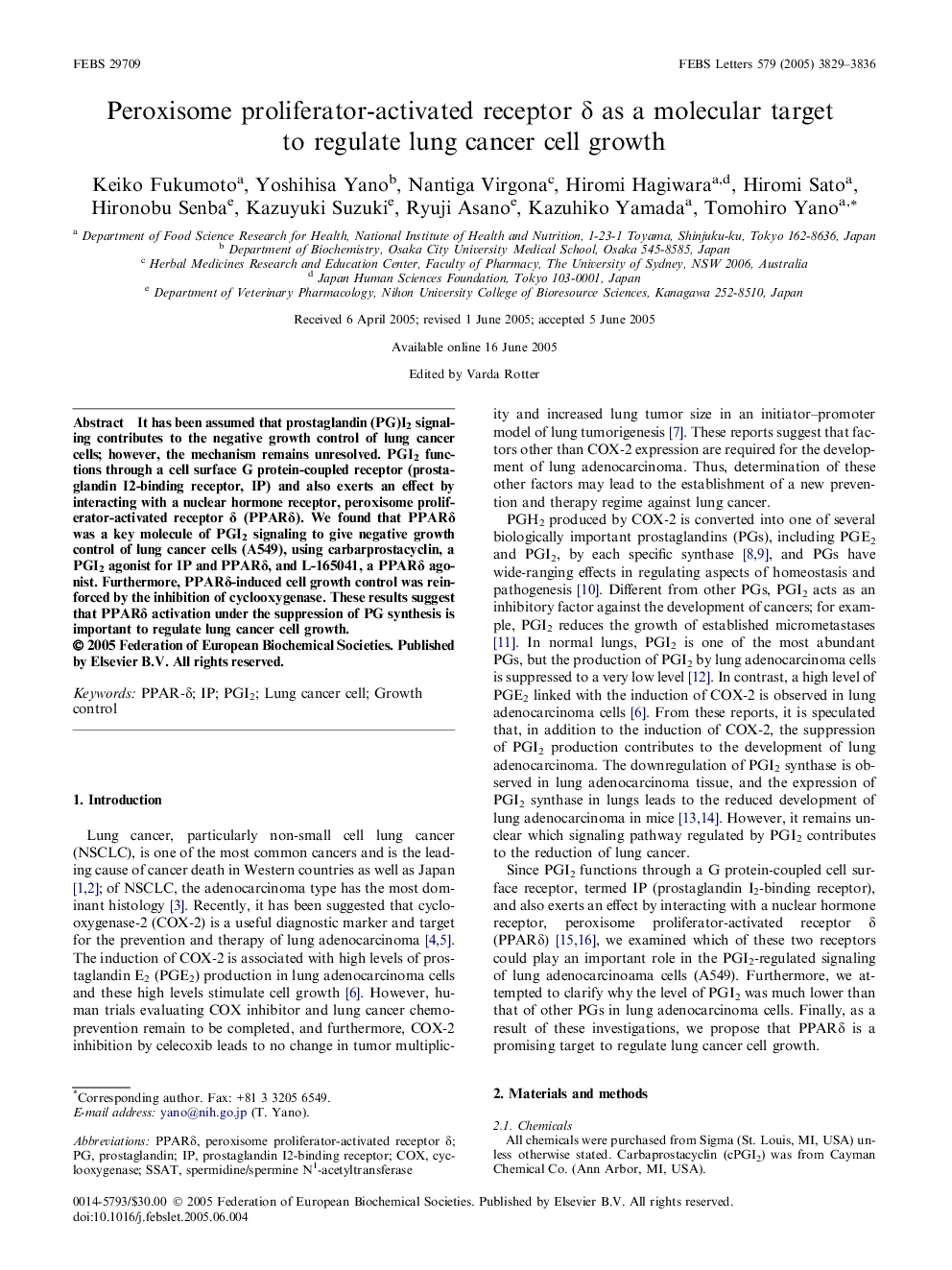| Article ID | Journal | Published Year | Pages | File Type |
|---|---|---|---|---|
| 2052458 | FEBS Letters | 2005 | 8 Pages |
It has been assumed that prostaglandin (PG)I2 signaling contributes to the negative growth control of lung cancer cells; however, the mechanism remains unresolved. PGI2 functions through a cell surface G protein-coupled receptor (prostaglandin I2-binding receptor, IP) and also exerts an effect by interacting with a nuclear hormone receptor, peroxisome proliferator-activated receptor δ (PPARδ). We found that PPARδ was a key molecule of PGI2 signaling to give negative growth control of lung cancer cells (A549), using carbarprostacyclin, a PGI2 agonist for IP and PPARδ, and L-165041, a PPARδ agonist. Furthermore, PPARδ-induced cell growth control was reinforced by the inhibition of cyclooxygenase. These results suggest that PPARδ activation under the suppression of PG synthesis is important to regulate lung cancer cell growth.
